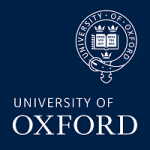项目介绍
About the course
The DPhil in Cellular Structural Biology is jointly organised by the University of Oxford, Diamond Light Source and the Rosalind Franklin Institute. It provides outstanding training in structural biology methodology, allowing students to apply their knowledge to methods development or to the study of important molecular and cellular systems.
Students spend the first year learning a range of structural biology techniques, undertaking two five-month projects in different laboratories and following taught courses. We encourage students to learn two of the major structural biology techniques during these two projects.
Students then spend years two to four of the programme primarily engaged in their research projects. They have the opportunity to work with outstanding structural biologists, continuing to develop structural methods, or to investigate the molecular basis for cellular processes, including in infection or membrane biology. Collaborative projects are highly encouraged, with students building supervisory teams, which contain their primary structural biology supervisor as well as others with expertise in complementary methods or particular biological questions.
Training in key research techniques should include:
- X-ray crystallography
- nuclear magnetic resonance spectroscopy
- electron cryo-microscopy and electron tomography
- synchrotron radiation and integrative structural biology
- high-resolution light microscopy
- computational biochemistry and molecular simulations.
The students write reports at the end of each rotation project and have the opportunity to discuss the report and their research project with one of the principal investigators associated with the programme. They also prepare a project proposal at the end of the first year to outline what they plan to do during their DPhil project. Both of these activities provide valuable training in proposal and report writing.
Supervision
Each student will be guided and supported by a supervisory team. The students are encouraged to be flexible about the supervisor until they arrive in Oxford, as the first week of their course is spent meeting all of those associated with the programme and making decisions about where to work during their rotation projects. A primary supervisor will be an expert in a core structural biology technique and will ensure the provision of training. Co-supervisors will bring expertise in specific methods, which may be structural or may be other techniques which enrich the training and the research. Students will receive termly progress reports from their supervisors, and in addition, the programme directors will regularly meet with students to provide guidance, support and careers advice.
The allocation of graduate supervision for this course is the responsibility of the Medical Sciences Doctoral Training Centre. It is also not always possible to offer students their preferred supervisor, as Wellcome have guidelines about the number of students who each individual supervisor can work with. However, with such a broad pool of excellent supervisors, this is rarely a problem. Under exceptional circumstances a supervisor may be found outside the Medical Sciences Doctoral Training Centre.
Assessment
All students will be initially admitted to the status of Probationer Research Student (PRS). Within a maximum of six terms as a PRS student you will be expected to apply for transfer of status from Probationer Research Student to DPhil status.
A successful transfer of status from PRS to DPhil status will require the submission of a report on progress to date on research and future plans. Students who are successful at transfer will also be expected to apply for and gain confirmation of DPhil status within ten terms of admission, to show that your work continues to be on track.
Both milestones normally involve an interview with two assessors (other than your supervisor) and therefore provide important experience for the final oral examination.
You will be expected to submit an original thesis of up to 50,000 words within a maximum of four years from the date of admission. To be successfully awarded a DPhil in Cellular Structural Biology you will need to defend your thesis orally (viva voce) in front of two appointed examiners.
Graduate destinations
Our programme prepares students for a wide range of future careers, providing project management experience, programming skills, and the experience of working in a precise and numerically rigorous scientific field. We equip and support our students to transition to careers in academia, industry and beyond, while ensuring that we train a cohort to continue to apply and to develop structural biology into the future.
Many graduates from this programme continue in research in prestigious laboratories worldwide and are now world-leading researchers, either as senior group leaders or in established academic posts. Many are leaders in research and development in industrial settings. Other graduates are in a wide range of different careers, including medicine, scientific administration, health management, consultancy, patent law and the civil service.
Changes to this course and your supervision
The University will seek to deliver this course in accordance with the description set out in this course page. However, there may be situations in which it is desirable or necessary for the University to make changes in course provision, either before or after registration. The safety of students, staff and visitors is paramount and major changes to delivery or services may have to be made in circumstances of a pandemic (including Covid-19), epidemic or local health emergency. In addition, in certain circumstances, for example due to visa difficulties or because the health needs of students cannot be met, it may be necessary to make adjustments to course requirements for international study.
Where possible your academic supervisor will not change for the duration of your course. However, it may be necessary to assign a new academic supervisor during the course of study or before registration for reasons which might include illness, sabbatical leave, parental leave or change in employment.
For further information please see our page on changes to courses and the provisions of the student contract regarding changes to courses.
录取要求
-
We generally require at least an upper second-class undergraduate degree with honours in a relevant biological sciences subject, although those who have not achieved this level of qualification will be considered if they show strong performance in a master’s course.
-
We are looking for students with a proven enthusiasm for studying Cellular Structural Biology.
-
Research or working experience in a relevant field is an excellent way in which to demonstrate that you have explored structural biology and that your application is fully informed.
-
Whilst not required, publications demonstrating previous research success in a relevant field are likely to advantage a candidate’s application.
-
Our aim is to recruit a diverse cohort of students from a range of backgrounds, selecting those with the greatest potential to flourish on the course.
联系方式
电话: +44 1865 270000相关项目推荐
KD博士实时收录全球顶尖院校的博士项目,总有一个项目等着你!






